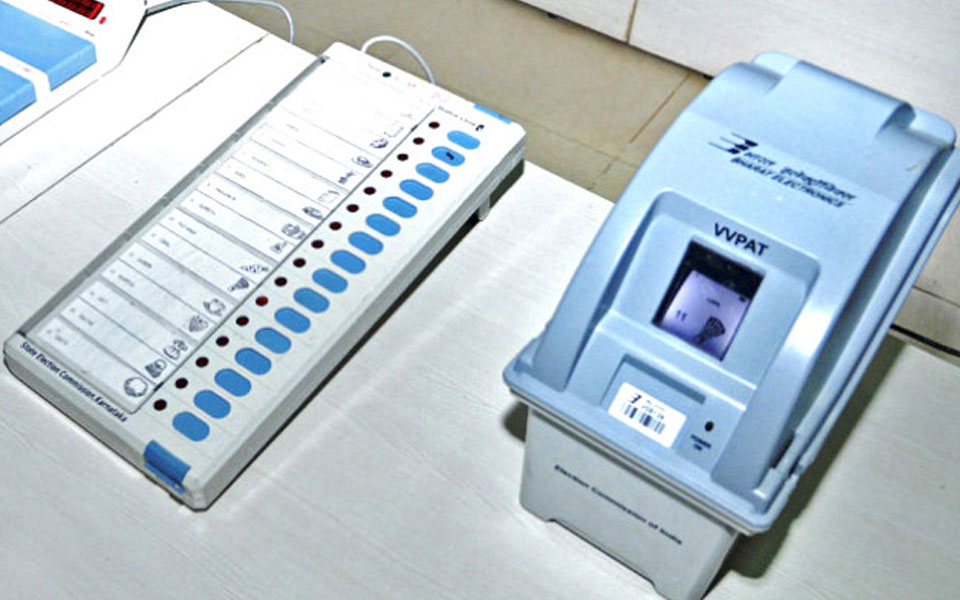When elections end, mostly all parties get into introspection mode to examine the reasons for their victory or loss. If the party has done badly, at least a few prominent leaders in vantage positions will be expected to resign. But today things have changed. The parties that have lost hardly introspect, and instead shift the entire blame on hacked EVMs and rest is easy.
BSP did this when Mayawati lost in UP assembly elections without engaging in debates with the infights and polarization of votes and other factors that had caused the loss. With the loss of face in Karnataka elections, the losing party is now blaming the EVMs for this. The confidence Congress exhibited of winning 120 seats, and arguments of ‘no anti-incumbency’ have fallen flat with massive loss of seats. Even while the discussions on what caused this are on, some Cong leaders have alleged that EVMs have been manipulated in 30-40 constituencies. While observing the results from some staunch supporting places, this allegation may even ring true! But the blame on EVM is restricted to the machine alone, and no one is going forward to lodge a complaint or do anything to rectify it. If these allegations that started after UP elections are indeed true, why was the case not followed to a complaint and then corrective actions? Why are politicians conveniently silent when results favour them and cry victim when they are not?
This is not a new complaint. Long ago, L K Advani of BJP had blamed EVMs when the UPA government came into power in the centre. Many have proven that the voting machines can be easily hacked. This time around, pressing any button would lead to BJP getting the votes by default. The allegations of Modi government getting the use of manipulated EVMs have not died down. Yet, the BJP is asking a crucial question of ‘why reject the technology?’
This question may not matter much. But the point that many developed nations have gone back to ballot papers having rejected EVMs after allegations of their misuse surfacing, is a point to be noted. That does not mean those countries are anti-technology. They simply dumped the EVMs and went back to their trusted method because they did not want to compromise on their country’s foundation of democracy.
But India shows undue interest in continuing with EVMs, no matter what. Using technology for the sake of it should not be a matter of pride. We need to know when to reject the technology as well, in order to protect our institutions. EVMs do un-complicate the process of voting and counting by being time efficient. But is that the only criterion we should be considering? If someone can hack into the system and get the desired results, how prudent it is to continue with the use of gadgets? Is this not a mockery of the system?
The Election Commission insists that the EVMs can never be hacked, and on the parallel, many hackers have shown how it can be done. Apart from BJP, all other parties have expressed doubts about EVMs including Shiv Sena. The Election Commission needs to consider all this, and take a decision before the next general elections. All parties need to come together on this as well, in order to ensure deeper participation in this process and reach an amicable solution.
While others are at this, Prime Minister Narendra Modi needs to answer why is he insisting on the use of EVMs when every party is raising doubts about the authenticity of this technology.
Let the Truth be known. If you read VB and like VB, please be a VB Supporter and Help us deliver the Truth to one and all.
Kalaburagi: Four men have been arrested in Kalaburagi on charge of hacking a man with lethal weapons and pelting stones at him under the limits of Station Bazaar Police Station recently.
According to police sources, Anand Jalak Shinde (34), Ashitosh Jalak Shinde (30), Imran Mehboob Sheikh (28) and Sohaib Anwar Qureshi have been arrested. The men are accused of the brutal murder of Syed Mehboob, a resident of Station Bazaar Upper Line Hamalawadi in the city.
An FIR was filed by the Station Bazaar Police Station based on a complaint given by Syed Ismail, father of the deceased Syed Mehboob.
Following quick probe, the police team successfully arrested the suspects within 24 hours. The arrested men were produced in court and have been sent to judicial custody.
The City Police Commissionerate has appreciated in an official release the police team’s quick solving of the murder case and arrest of the four men accused of murdering Syed Mehboob.





